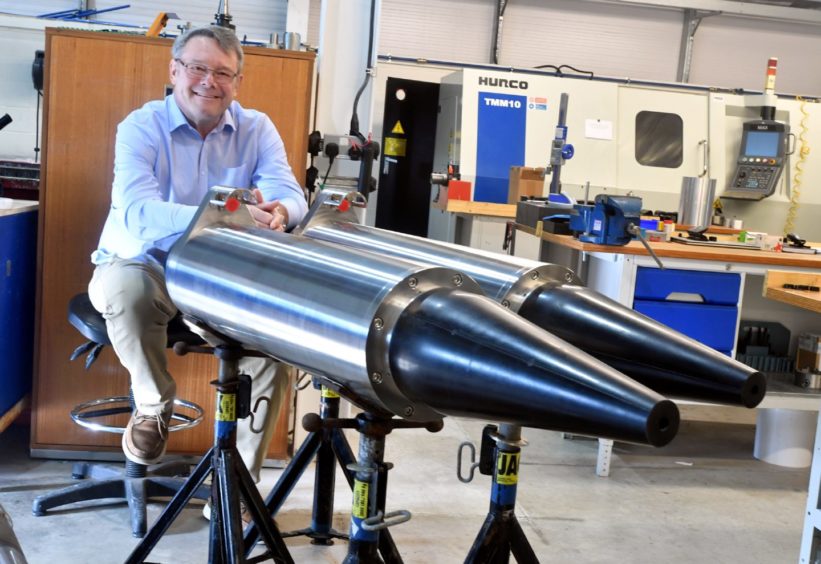
Subsea technology firm OceanTools, of Aberdeen, has shipped a first batch of equipment it says could help save thousands of people if another tsunami struck south-east Asia.
OceanTools managing director Kevin Parker said the order was worth around £300,000 and described the firm’s involvement in the project as “gratifying on many levels”.
Its tool-development prowess has also resulted in an invite to join a prestigious international joint task force.
OceanTools’ deepwater housings are designed to contain various sensors, including seismometers and pressure sensors, for measuring earthquakes and the resultant tsunamis.
The housings are linked using cables that carry data great distances to shore-based monitoring stations.
OceanTools’ housings were ordered by an Indonesian Government agency, which first became aware of the company last year when it announced the award of a contract to supply housings to Proeon Systems, of Norfolk.
The £400,000 deal with Proeon was the biggest in OceanTools’ 23-year history.
The Indonesian agency ended up giving OceanTools two contracts for housings, one associated with tsunami detection and the other with telecommunications.
News of the company’s feats spread as far as the Pacific Ocean.
Prof Bruce Howe, chairman of Hawaii University’s ocean and resources engineering department, took a shine to OceanTools’ housings.
He invited Mr Parker to join a task force for tsunami detection, and ocean and climate monitoring.
The task force was formed in 2012 by the International Telecommunication Union, the intergovernmental oceanographic commission of the United Nations Educational, Scientific and Cultural Organisation (Unesco), and the World Meteorological Organisation.
Prof Howe is chairman of the group, which is made up of around 100 experts from the science, engineering, business and law communities.
Mr Parker said: “Nearly 230,000 people lost their lives in the Indian Ocean Boxing Day earthquake and tsunami of 2004.
“Being involved in a project that has the potential to save human lives on this scale is deeply rewarding for us.
“As a result of developing such technology, we now sit on a Unesco joint task force that uses our technology, not just for tsunami detection, but may also be used to monitor the effects of climate change on the world’s oceans.”
He said the business was going from strength to strength, having also secured a six-figure contract from Brazil for systems used to track lost remotely-operated vehicles.
Other recent successes include a £50,000 deal to supply devices to marine technology business Seatronics.
Its PowerLOG dataloggers and OceanDISP subsea displays let the user view pressure sensor readouts in real time, while simultaneously logging the data for future analysis.
The company has also enjoyed strong demand for its subsea leak detection system and subsea cameras and lights.
